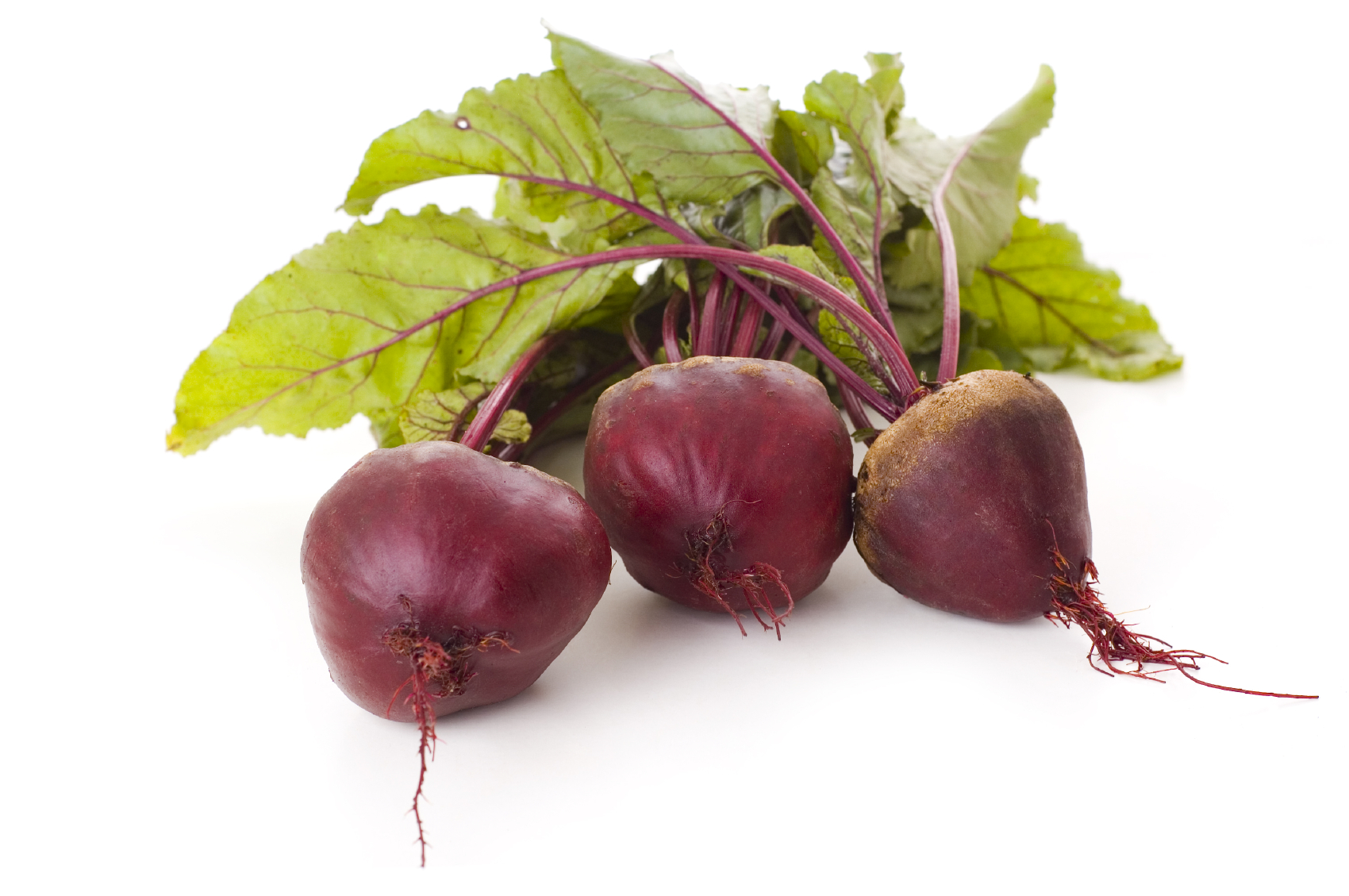Beets might not be your favorite vegetable… But they’re not a food you want to avoid. Eating beets comes with some major—and surprising—health benefits. And they go way beyond skin, hair, and nail health. We’re talking about game-changing—even life-changing—perks from one bulbous beet.
Here are five reasons to eat more beets.
1. Tames Blood Pressure: Forget being a slave to dangerous prescription drugs for the rest of your life… Eating beets are a safe, quick, and effective way to help keep your blood pressure in check. But beet juice may be your best bet. This vegetable is high in dietary nitrates. Your body converts them into nitric oxide. This helps boost blood flow and delivers oxygen—and nutrients—to your cells.
One study found that drinking 500 mL of beet juice reduced blood pressure by over 10 points in just three hours.1 And it doesn’t lose potency if you add other fruit juices to the mix. Subjects in another study lowered their systolic blood pressure by about five points within six hours of drinking a beetroot and apple juice combo.2
2. Prevents Dementia: The nitrates in beets also help nutrients and oxygen reach your brain cells. One study revealed that seniors who drank 16 ounces of beet juice for breakfast showed increased blood flow to their brain on MRIs. And not in general, either. The blood flow was in the white matter of the frontal lobes. These are the areas of the brain that degenerate with age. It can lead to cognitive impairment, dementia, even Alzheimer’s.3 And it’s not just about having more blood in the brain. The antioxidant content of beet juice may also help fight free radical damage that contributes to these problems.
3. Controls Blood Sugar: Beets are a rich source of alpha lipoic acid (ALA). It’s the “Universal Antioxidant” that races through your entire body turning sugar into energy. ALA can lower insulin resistance and prevent blood sugar spikes. It can even be used by patients with type 2 diabetes to improve insulin sensitivity and fat metabolism.4 One study found that ALA significantly improved subjects’ fasting glucose levels and insulin resistance in as little as eight weeks.5
4. Lowers Inflammation: The ALA in beets is both water and fat-soluble. This means ALA works in almost every part of your body. This helps fight inflammation throughout your entire body with potent antioxidant support.6 But beets also improve circulation. This lets other antioxidants travel easily to the site of inflammation. Like choline. It’s another antioxidant found in beets. Researchers in one study found that subjects consuming the most choline had over 20% less C-reactive protein—a blood marker of inflammation.7
5. Supports Liver Function: Your liver depends on the iron, calcium, B vitamins, and antioxidants found in beets to work at its best. Beets help thin the bile in your liver. This helps keep it moving into the small intestine. If there’s a blockage in your bile ducts, it can lead to jaundice. This turns your skin—even eyes—yellow. But this can also cause abdominal pain and vomiting.8 Beets may also help bind excess bile salts that can cause DNA damage and reflux disorders.9
Adding beets to your diet is one of the best ways to support your body’s healing power. Try roasting and grating them into a salad. You can also juice them along with other foods—like lemons and carrots—to change the flavor and add benefits. Just be sure to buy them organic—90% of U.S. beets are GMOs.
Like this Article? Forward this article here or Share on Facebook.
References:
1http://www.ncbi.nlm.nih.gov/pubmed/18250365
2http://www.nutritionj.com/content/11/1/106
3http://news.wfu.edu/2010/11/03/benefits-of-beet-juice/
4http://www.ncbi.nlm.nih.gov/pubmed/24116330
5http://www.ncbi.nlm.nih.gov/pubmed/21666939
6http://www.nutrition411.com/specials-centers/ck142-diabetes/ck144-for-healthcare-professionals/ck178-research-and-literature/item/28793-alpha-lipoic-acid/
7http://www.ncbi.nlm.nih.gov/pubmed/18258634
8http://www.nlm.nih.gov/medlineplus/ency/article/000263.htm
9http://www.sciencedirect.com/science/article/pii/S0308814606006492

